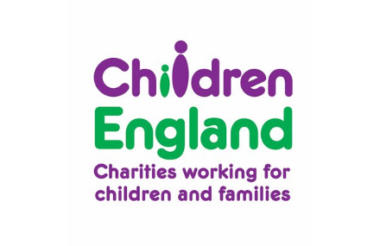Children England has announced plans to close after 81 years due to long-standing financial challenges.
The infrastructure body for children’s charities, founded in 1942 as the National Council of Voluntary Child Care Organisations (NCVCCO), was primarily funded by the government for its first 72 years.
For almost a decade, the charity has been supported instead by its members, charitable funders and donors but has run a deficit in four of the past five years, according to the Charity Commission website.
Kathy Evans, Children England’s chief executive, wrote in an article for Civil Society that when government funding was withdrawn, “the charity’s reserves would have given it no more than 18 months left to run”.
“It is through the generosity and support of members, charitable funders and donors that we survived so much longer on those reserves.
“But that strategy couldn’t last forever, and the sudden inflation crisis of the last 18 months was the final nail in the coffin of making our charitable funding stretch as far as it could."
Children England’s members, including NSPCC and the Together Trust, expressed sadness at the charity’s closure and paid tribute to its campaigning work on behalf of children and young people’s services.
Sector umbrella bodies NCVO and the Civil Society Group also expressed regret at the closure, with the latter highlighting the recent loss of fellow infrastructure organisations FSI and the Small Charities Coalition in recent months.
Children England: ‘Profound concern about what’s happening to all charities’
Speaking to Civil Society, Evans said: “We couldn’t ask our members to significantly raise their fees when they face the same challenges.
“Charitable funders face more competition, and similar pressures, on their own cost base.
“Inflation is an existential nail in the coffin for Children England, but it is really hard to see your way around for any kind of organisation, and that definitely includes our friends in other infrastructure bodies as well.”
Evans said in a statement: “No CEO wants to close the organisation they love and feel responsible for, but I am proud of the decisiveness of our board in knowing when it’s time to call it a day.
“In the extraordinarily difficult economic circumstances the whole nation is experiencing we know that many other charities, businesses and public services are facing similar mathematical impossibilities in trying to find ways to juggle the bills, the income and the security that all employers and employees need, just to stay afloat.
“We know we aren’t the first, nor likely to be the last, purposeful organisation that has had to grasp the necessity of closing this year, despite still believing passionately in the value and importance of what they do.
“Our profound concern about what’s happening to all charities and public services in this pernicious economic context will outlast our ability to continue campaigning about them.”
David Holmes, Children England’s chair said: “The board of trustees have taken the difficult decision to close Children England while we are still in a position to preserve its very substantial legacy.
“Key aspects of its work such as its funded 4in10 project and the compelling vision and proposals that its Young Leaders recently set out for a ChildFair State will be found caring new homes within our sector.
“We will also do all we can to gather, share and celebrate the collective wisdom of this small but brilliant organisation before we finally close in a few months’ time.
“Children England may be closing but the collective commitment to the children’s charity sector of Kathy Evans its fantastic CEO, its staff, its board of trustees, its members and its many supporters will live on far into the future.”
Charity members: ‘An extremely sad moment’
Peter Wanless, CEO of the NSPCC, said: “This is an extremely sad moment for the children’s charity sector and, more importantly, for all the children and young people whose wellbeing Children England have worked tirelessly to protect and promote for more than 80 years.
“Children England have been instrumental in helping to deliver significant reforms and change for the benefit of children. At the same time, they have never been afraid to speak truth to power whenever they felt children’s interests were being compromised or threatened in any way. For these and countless other reasons they will be much missed.
“We thank all those associated with Children England, past and present, for everything they have done. This great organisation may be closing but the need to stand up for children is as important as ever. The NSPCC and our fellow children’s charities will do all we can to honour their legacy and keep up this fight.”
Mark Lee, CEO of the Together Trust and trustee of Children England, said: “Children England has been a passionate and powerful advocate for the rights and needs of children to be at the centre of policy and political thinking.
“Children England has led campaigns, researched issues and most importantly listened to children and young people to develop credible options and solutions.
“Anyone with an interest in services for children, the legislation and policy designed to support them will deeply regret the closure of Children England – I feel very sad indeed that this is happening.”
Umbrella bodies: ‘Latest example of charity trustees taking the difficult decision to close’
Sarah Vibert, CEO of the NCVO, said: “Children England is the latest example of charity trustees taking the difficult decision to close. Unfortunately, they will not be the last.
“This winter is, once again, set to be tough for the voluntary sector and concerns are growing that while many will be able to make it through the season, the services we collectively provide as a sector will need to be significantly reduced or stopped to keep the lights on.
A Civil Society Group spokesperson said: “The regrettable closure of Children England, and the Small Charities Coalition and FSI before it, represents a concerning weakening of the fabric supporting civil society to achieve the most for the causes, people and communities we serve.
“We need to ensure that the work of infrastructure bodies is understood and valued. Their role is vital in ensuring a thriving voluntary sector supporting people and communities.”
Related Articles












